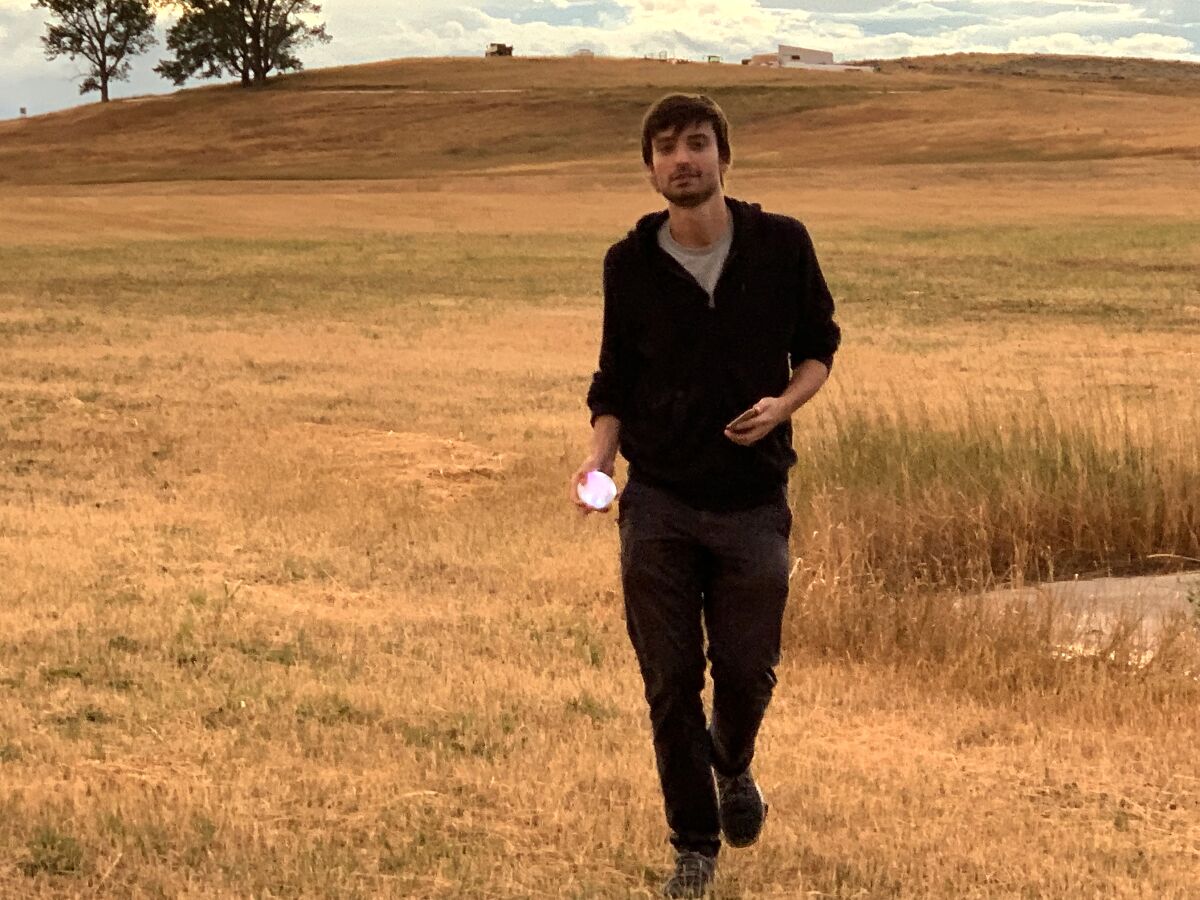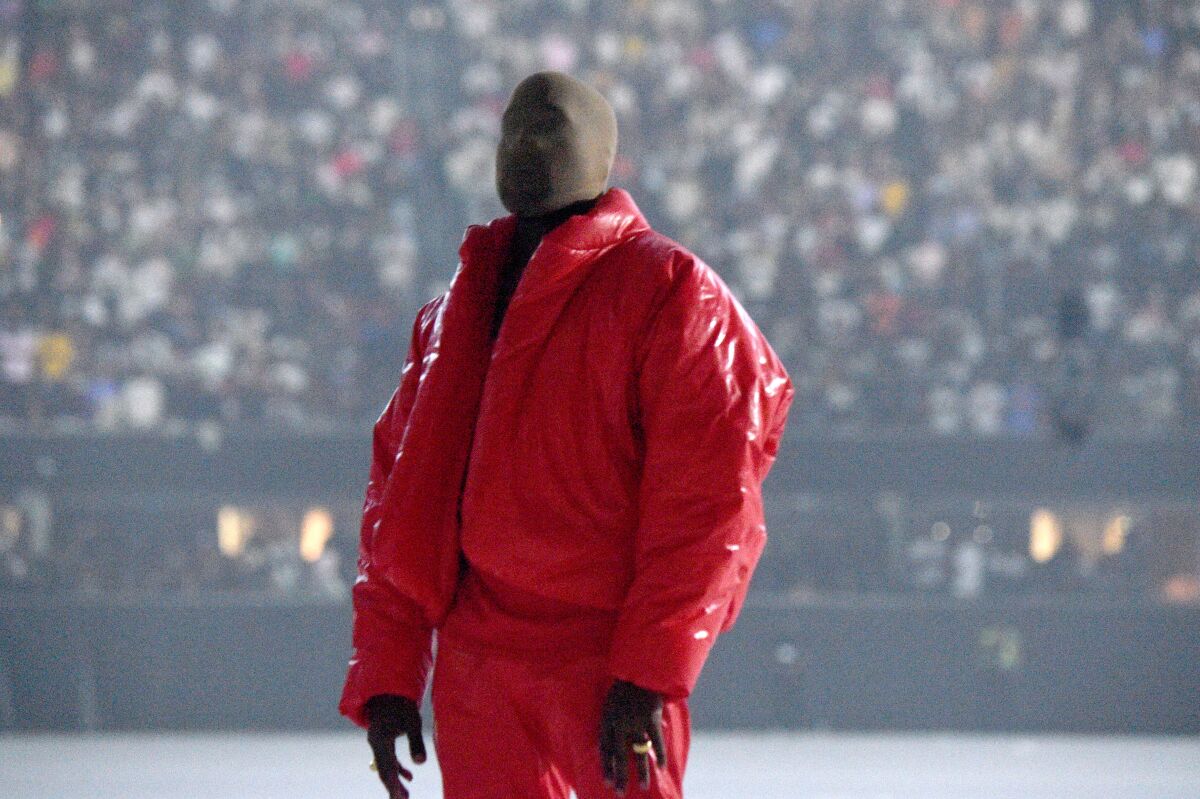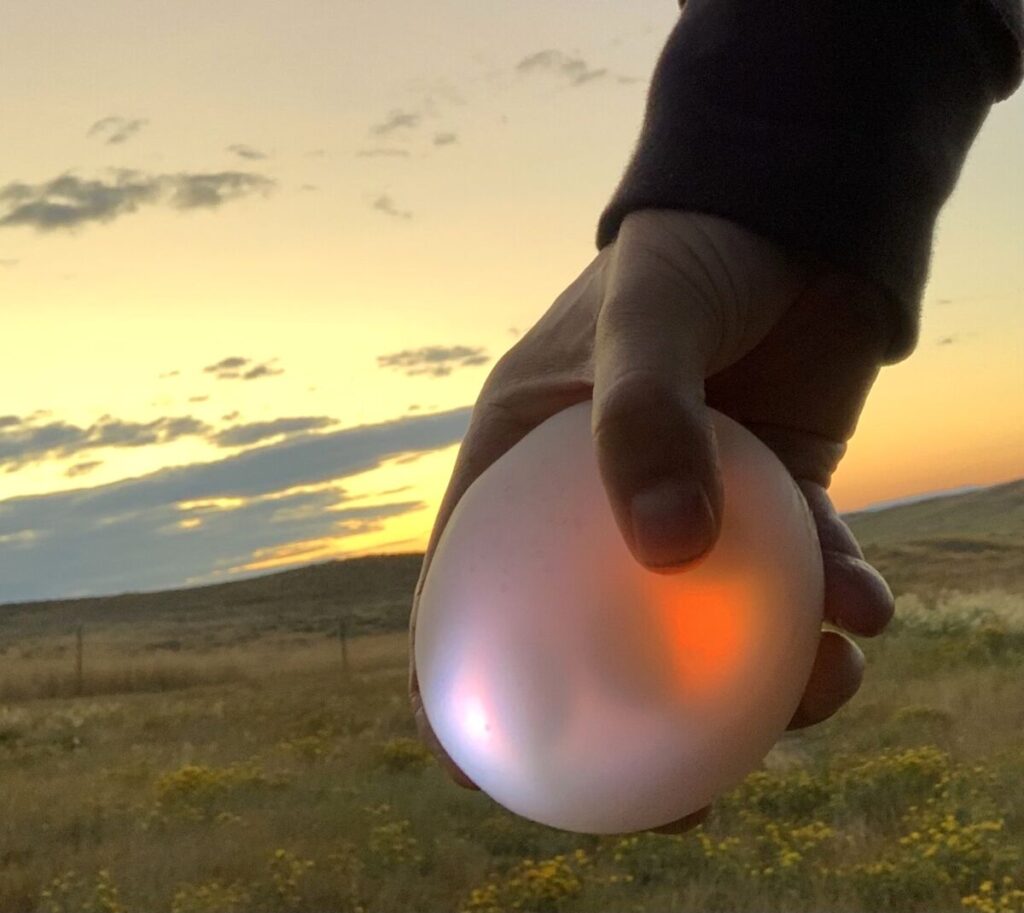Alex Klein’s tech inventions have passed through the hands of some of the most powerful people in government, music and business. Barack Obama, Microsoft Chief Executive Satya Nadella, former U.K. Prime Minister Boris Johnson and former New York City Mayor Michael Bloomberg have all touted the 32-year-old Londoner’s music-creation devices, personal computers and software. This year, his company, Kano, launched a sand-dollar-shaped digital music player that he hoped would become both a transformational new way to listen to music and a distribution platform.
One particular fan of Kano’s Stem Player, however, has vexed Klein. Kanye West, the artist who now performs as Ye, released his latest album, “Donda 2,” exclusively on the Stem Player in February. It first looked like a coup for Klein’s company — a futuristic iPod/DJ booth/sculpture, packaged with an album from a music and fashion titan.
Eight months later, West descended into a tear of antisemitic, conspiratorial and far-right tirades that has evaporated his career. His record deal with longtime label Def Jam concluded; talent agency CAA dropped him and fashion partners including Adidas, the Gap and Balenciaga cut ties or let deals expire, potentially costing him billions.
Klein was one of the last collaborators to team up with West before his spiral. It’s left his promising tech company with a flagship product whose most famous user has disgraced himself, insulted Klein (who is half-Jewish) and tried to take control of his firm. West and Kano also face licensing lawsuits over West’s samples on “Donda 2.”
Alex Klein holds his Stem Player.
(Alex Klein / Kano)
Klein tells The Times that over the last year his emotions have whiplashed between exhilaration over what Kano achieved with the Stem Player and furious disbelief at West’s actions since. He’s hopeful the company can move on from its partnership with West, and he’s already begun a new iteration of the device, onto which any artist can upload their music. But after surviving a front-row seat to the rapper’s collapse, Klein’s trying to make sense of who Ye’s become.
Kanye had been “very funny, and can be super candid,” Klein said in an email interview from his home in London. “But this recent stuff is a lot different.”
A soft-spoken, meticulous engineer with an indie-rocker uniform of black glasses and plaid button-downs, Klein founded his company eight years ago with a home-build laptop kit and software. Kano has now sold more than 1.5 million units of its various products and has over 100 employees. In 2019, they had big hopes for the new Stem Player to change how artists and fans physically interacted with music.
The soft-coated speaker breaks tracks into components (vocals, drums, bass and arrangements) and users can remix them by hand. “Our physical products are more human,” Klein said. “You can build off of them, like Legos.” Artists on Stem’s platform would own their music rights, charge what they wanted and keep all the profit on the content.
In 2019, West reached out to Kano, smitten with the company’s tactile approach to computing. At the CES trade show in Las Vegas, West “told me he wanted ‘that dope clear tablet joint’,” Klein said, referring to a demo of one of Kano’s computers. “I brought a set of our tech to his house, which he loved. He asked me if he could put his album on our speaker device. He also asked me to teach him how to code.”
While Klein was aware of West’s volatility, “I was always a fan of his music,” he said. “There was so much beauty in each of the elements we were hearing in the studio. I liked working with him, I liked him as a person. We spent time together in Cody (Wyoming), where music was made for ‘Jesus Is King,’ which was a memorable time that I’m very grateful for.”
Kano prepared to launch the Stem Player as a standalone product in 2022, when West asked at the last minute if the device could ship with files for “Donda 2” as an exclusive release. Klein agreed — a new Ye LP would surely turn ears. But there were squabbles early on. “Unfortunately, Kanye didn’t want to allow other musical artists onto the platform. This was a disagreement that we had trouble resolving,” Klein said. West offered to buy out the company and the rights to the Stem player, but Klein declined.

Alex Klein at West’s ranch in Cody, Wyo. during the recording sessions for the “Jesus Is King” album.
(Courtesy of Kano / Alex Klein)
Kano nonetheless sold more than 100,000 of the initial batch of Stem Players at $200 apiece. While reviews were mixed for the album and its unorthodox delivery system, it fit West’s history of experimentation (he famously continued to refashion his 2016 album, “The Life of Pablo,” weeks after it was released). West’s visual aesthetic of blobby minimalism moved billions of dollars of shoes, and the Stem Player felt in line with his fashion achievements.
Eight months later, everything fell apart.
Beginning in October, West posted social media threats to go “death con 3 on JEWISH PEOPLE,” seethed against abortion rights and made erratic appearances on Tucker Carlson’s show and the “Drink Champs” podcast, where his antisemitic rants shocked and troubled his family, fans and business partners. His purchase of right-wing social media site Parler confirmed that he was digging deeper into the far-right ecosystem.
Klein watched, aghast, as the public face of his new product became the most toxic figure in popular culture. Asked how West’s antisemitism affected him personally, Klein said “Those comments aren’t worth any further comment.”
West “tried to call me racist when I gently told him that attacking a whole race of people wasn’t good for him or Stem,” Klein wrote in a Reddit post. In a Discord chat last week, Klein said that “Good engineering is about having correct information and acting upon it … At the end of the day, as long as what’s flowing through Ye is hatred towards a particular ethnic group … it’s gonna be very hard for us to collaborate creatively.”
“I asked Kanye not to take the path he’s on,” Klein said. “We’ve told him that we’re unable to work together while he’s putting out racial conspiracy theories.” Klein said he’s dissolved all business ties with West. “There’s no deal in place,” Klein said.
West, who currently has no legal or public relations representation, could not be reached for comment.

Kanye West at a “Donda” listening event in July 2021.
(Kevin Mazur/Getty Images for Universal Music)
Their relationship grew even more fraught after Klein and Kano were named in a lawsuit that claimed West’s song “Flowers” used unlicensed samples of “Move Your Body,” the 1986 house music hit from Marshall Jefferson. Phase One Network, the company overseeing the catalog of Boogie Down Productions, likewise sued West and Kano, claiming “Life of the Party” used unlicensed samples of KRS-One and DJ Scott La Rock’s 1986 single “South Bronx.”
“The Kano and Stem team were assured by Kanye and Yeezy that they would provide music with ‘all intellectual property rights, licenses and consents’,” the company said in a statement about the suit.
Since West’s unraveling, Klein and Kano plowed ahead on a new, Ye-free edition of the Stem Player, open to all artists and amateurs to upload music and play with mixes. While the Stem Player will likely be associated with “Donda 2” for some time, it’s been used to remix over a billion plays of songs, and Klein said that more than 90% of action on the platform has nothing to do with West. Klein hopes future iterations can use a broad catalog of music to “deepen people’s understanding of what they love.”
In the meantime, to unwind from the tension around Stem Player’s launch, Klein and a group of friends climbed Mont Blanc, the tallest mountain in Europe, this summer. Like so many in West’s orbit, he’s had to reconcile the music he adored with the ugliness of West’s recent collapse. On the Stem Player, there’s at least one elegant solution for that.
“Stem lets you customize music,” Klein said. “You can turn down Ye’s voice if you like.”

